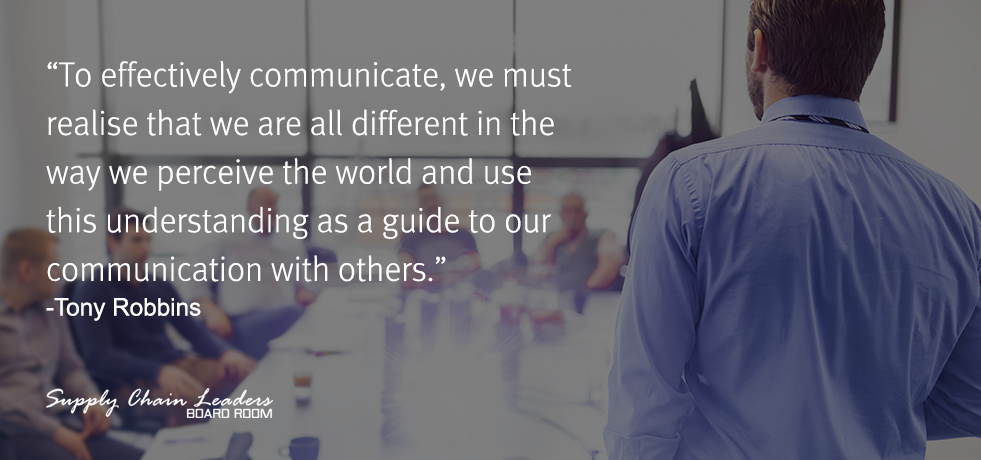When I talk about the tools of your trade as an executive supply chain leader, I don’t mean systems and software. I don’t mean smart phones and tablets. I don’t even mean laser pointers and coloured marker pens. No … as you’re probably acutely aware, the tools of your trade lie within you and we all have some that are sharper than others.
I write this post in the hope that it will offer something to think about and serve as a talking point with your supply chain executive colleagues, both within your own organisation and outside.
The topic is characteristics and attributes—the ones that define a successful supply chain executive, with a focus on three in particular which should be kept sharp if you are to effectively lead in today’s competitive and global marketplace.
1. The Decision-making Tool
Do you ever get the feeling that your approach to decision-making isn’t as effective as it used to be? If so, there’s no shame in admitting it, especially if you’ve recently moved into an executive role or if the supply chain is gaining an elevated profile within your organisation. You are in the company of many who have experienced the same, and can therefore empathise.
The reality is that many organisations are still coming to terms with the importance of their supply chains. As that happens, the pressure on executives too, is on the rise.
Your decision-making style needs to grow and evolve with these changes, so it’s something to pay attention to, and to seek help with if you sense that it’s a tool becoming dull with use.
2. The Cross-functional Translation Tool
Did you step up into your executive role from a position in logistics management, procurement, or manufacturing? How diverse is your previous functional experience?
It doesn’t matter where you came from. As a supply chain executive, you must be comfortable discussing functionally specific issues and be able to understand the messages being articulated. You should also be able to take those messages and discuss them (perhaps in different functional languages) with those to whom they are relevant.
Today’s supply chain is all about integration and collaboration, and the role of the supply chain executive is to nurture that and lead the battle against silos within organisations.
Therefore, if you don’t have a great breadth of experience in multiple supply chain or general business functions, you should be especially opportunistic about getting involved with cross-functional activities and initiatives.
3. The Chain-alignment Tool
The clue is in the title … not the title of this blog post, but your title—the one that identifies you as a supply CHAIN executive. Let’s not beat about the bush, your role is broader than that of most executives. After all, you have an entire chain of processes to align and improve.
This means that in particular, you need to understand your organisation’s customers and its suppliers intimately.
The best way to gain that understanding is through direct interaction, so despite your lofty position, don’t be shy about getting involved with customer engagements, especially the tough ones. Not only do they help you learn about the customers’ perspectives, but also give you pause to think about how your own supplier relationships can be improved.
Keeping the supply chain aligned requires a willingness to swim in upstream and downstream waters, especially at times when they are in a turbulent state. If you can do that, you will continually gain insights for strengthening your supply chain, and your position as a successful supply chain executive.
And Finally … The Communication Tool
Yes, communication is one of the most valuable tools any of us can wield as professional leaders. When kept in good condition, it can be used to sharpen all the others. As a supply chain executive, you simply can’t communicate enough. That means communicating to learn and grow, as well as to lead and inspire.
Can you think of a better communication forum than a group of like-minded executives, ready and willing to share strategy, tactics, and leadership-wisdom in a confidential, but collaborative environment?
Would you like to sharpen your tools in good company, and gain new ones to add to your inventory, while helping your peers to do the same? At Supply Chain Leaders Boardroom, a program from Logistics Bureau, you can do exactly that. So to learn more about this unique and exciting concept in supply chain networking and knowledge sharing, contact us today: we’ll be pleased to answer your questions.




